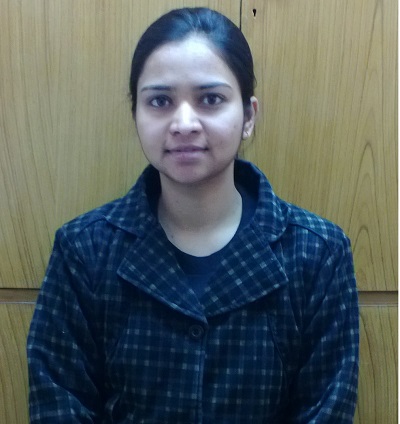Expert Lecture on "Deep Learning Framework for Intelligent Fault Diagnosis of Rotary Machines"
CIS Chapter, IEEE UP Section (CIS11) organized a Lecture Series on "Computational Intelligence". The speaker of the lecture was Dr. Sonal Dixit, Dept. of Electrical Engineering, Indian Institute of Technology Kanpur, India.
Date and Time
Location
Hosts
Registration
-
 Add Event to Calendar
Add Event to Calendar
Speakers
 Sonal Dixit of Indian Institute of Technology Kanpur, India
Sonal Dixit of Indian Institute of Technology Kanpur, India
Deep Learning Framework for Intelligent Fault Diagnosis of Rotary Machines
Biography:
Sonal Dixit (Graduate Student Member, IEEE) obtained Ph.D. from the Indian Institute of Technology Kanpur under the supervision of Prof. Nishchal K. Verma and Prof. A.K. Ghosh. She completed her M.Tech. from Banasthali University. Her research areas are related to Deep Learning, Condition Based Monitoring, computational Intelligence, and its application.
Email:
Address:Kanpur, Uttar Pradesh, India, 208016
Agenda
Abstract of the talk:
Maintenance of major industrial assets like an air compressor, engine, bearing, gearbox, etc. is one of the most crucial aspects of industrial plants and it directly affects the production, safety, downtime, and net revenue. Condition-based Maintenance (CBM) is the most widely adopted maintenance approach due to its reliability and proactive performance. Fault diagnosis and Remaining Useful Life (RUL) prediction are the major components of the CBM. The fault diagnosis system notifies the occurrence of a fault, its type, and location and RUL assesses the criticality of failure and predicts the remaining time of the machine before it requires maintenance. Data-driven-based approaches have been widely adopted for fault diagnosis purposes. In these methods firstly machine data is collected, featured, and analyzed using machine learning algorithms. The performance of conventional data-driven fault diagnosis frameworks relies upon the quality of extracted features and quantity of training data. To obtain good quality features from data prior knowledge and domain expertise is needed. Moreover, it is challenging to perform feature processing for large data. To resolve these issues deep learning-based fault diagnosis frameworks will be discussed along with the future directions.

